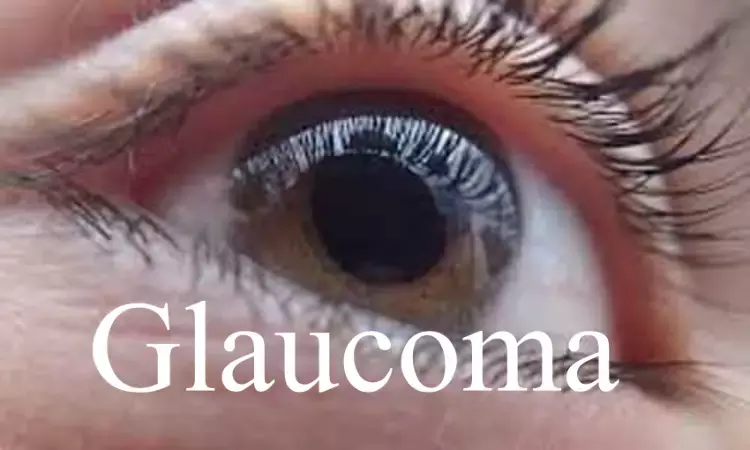- Home
- Medical news & Guidelines
- Anesthesiology
- Cardiology and CTVS
- Critical Care
- Dentistry
- Dermatology
- Diabetes and Endocrinology
- ENT
- Gastroenterology
- Medicine
- Nephrology
- Neurology
- Obstretics-Gynaecology
- Oncology
- Ophthalmology
- Orthopaedics
- Pediatrics-Neonatology
- Psychiatry
- Pulmonology
- Radiology
- Surgery
- Urology
- Laboratory Medicine
- Diet
- Nursing
- Paramedical
- Physiotherapy
- Health news
- Fact Check
- Bone Health Fact Check
- Brain Health Fact Check
- Cancer Related Fact Check
- Child Care Fact Check
- Dental and oral health fact check
- Diabetes and metabolic health fact check
- Diet and Nutrition Fact Check
- Eye and ENT Care Fact Check
- Fitness fact check
- Gut health fact check
- Heart health fact check
- Kidney health fact check
- Medical education fact check
- Men's health fact check
- Respiratory fact check
- Skin and hair care fact check
- Vaccine and Immunization fact check
- Women's health fact check
- AYUSH
- State News
- Andaman and Nicobar Islands
- Andhra Pradesh
- Arunachal Pradesh
- Assam
- Bihar
- Chandigarh
- Chattisgarh
- Dadra and Nagar Haveli
- Daman and Diu
- Delhi
- Goa
- Gujarat
- Haryana
- Himachal Pradesh
- Jammu & Kashmir
- Jharkhand
- Karnataka
- Kerala
- Ladakh
- Lakshadweep
- Madhya Pradesh
- Maharashtra
- Manipur
- Meghalaya
- Mizoram
- Nagaland
- Odisha
- Puducherry
- Punjab
- Rajasthan
- Sikkim
- Tamil Nadu
- Telangana
- Tripura
- Uttar Pradesh
- Uttrakhand
- West Bengal
- Medical Education
- Industry
Surgery reduces intraocular pressure better than eye drops in advanced glaucoma: BMJ

UK: A type of surgery called trabeculectomy for people with advanced glaucoma reduces intraocular pressure (IOP) more effectively than eye drops, reveals a recent study published in The BMJ. The study also found the surgery to be likely more cost-effective than eye drops over the person's lifetime.
A glaucoma is a group of eye conditions with substantial and detrimental effects on many aspects of daily living. Effective treatment can control the disease, prevent further sight loss, and prevents blindness. The only proven effective treatment for glaucoma is reducing intraocular pressure. Controlling IOP at the initial stage following diagnosis reduces the risk of further progression.
Anthony J King, Department of Ophthalmology, Nottingham University Hospital, Nottingham, UK, and colleagues conducted the study with an aim to determine whether primary trabeculectomy or the primary medical treatment produces better outcomes with regard to the quality of life, clinical effectiveness, and safety in patients presenting with advanced glaucoma in a pragmatic multicentre randomised controlled trial.
The study was conducted across 27 secondary care glaucoma departments in the UK. It included 453 adults presenting with newly diagnosed advanced open-angle glaucoma in at least one eye (Hodapp classification) between 3 June 2014 and 31 May 2017. 227 were given mitomycin C augmented trabeculectomy and 226 were given escalating medical management with intraocular pressure reducing drops.
Vision-specific quality of life measured with Visual Function Questionnaire-25 (VFQ-25) at 24 months was the primary outcome. Secondary outcomes included general health status, clinical effectiveness (intraocular pressure, visual field, visual acuity), glaucoma-related quality of life, and safety.
Based on the study, the researchers reported the following:
- At 24 months, the mean VFQ-25 scores in the trabeculectomy and medical arms were 85.4 and 84.5, respectively.
- Mean intraocular pressure was 12.4 (SD 4.7) mm Hg for trabeculectomy and 15.1 (4.8) mm Hg for medical management (mean difference −2.8 mm Hg).
- Adverse events occurred in 88 (39%) patients in the trabeculectomy arm and 100 (44%) in the medical management arm (relative risk 0.88). Serious side effects were rare.
Patients who underwent primary trabeculectomy had similar quality of life and safety outcomes and achieved a lower IOP compared with primary medication.
"Our study provides the first direct evidence of the outcomes of interventions for patients presenting with advanced glaucoma," the authors wrote in their study. "These results will inform clinicians and patients in making treatment choices."
Reference:
King A J, Hudson J, Fernie G, Kernohan A, Azuara-Blanco A, Burr J et al. Primary trabeculectomy for advanced glaucoma: pragmatic multicentre randomised controlled trial (TAGS) BMJ 2021; 373 :n1014 doi:10.1136/bmj.n1014
Dr Kamal Kant Kohli-MBBS, DTCD- a chest specialist with more than 30 years of practice and a flair for writing clinical articles, Dr Kamal Kant Kohli joined Medical Dialogues as a Chief Editor of Medical News. Besides writing articles, as an editor, he proofreads and verifies all the medical content published on Medical Dialogues including those coming from journals, studies,medical conferences,guidelines etc. Email: drkohli@medicaldialogues.in. Contact no. 011-43720751


